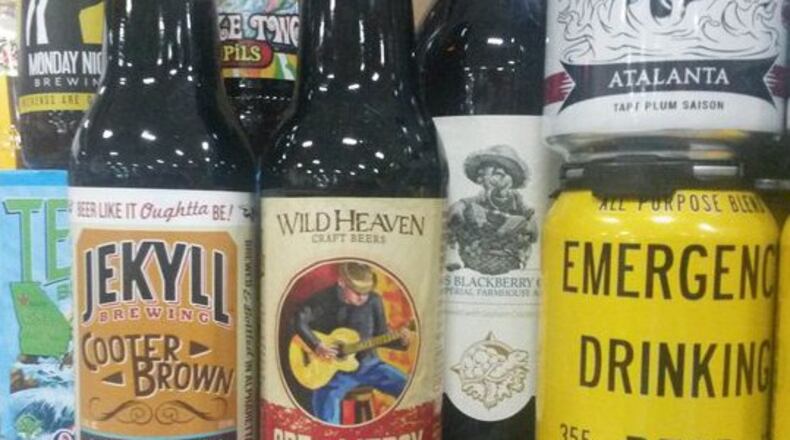You’ve heard the admonition against watching either laws or sausage being made. Well, observing the “resolution” of the dispute involving Georgia’s craft brewers was like watching the pig go into the grinder while it’s still squealing.
For the sake of Georgia’s business-friendly reputation, this better be a one-time incident. I’d hate to think other companies and industries are getting a twitch in the snout watching this play out.
For some time, small brewers have been trying to win what would seem their American right to sell their own product on their own property. Georgia's three-tier system dividing manufacturer from wholesaler from retailer, conceived after Prohibition ended and scarcely adjusted since, stood in the way. Last spring, legislators gave the brewers (and distilleries) a convoluted compromise: They could "give" their products to people who paid to tour their facilities.
But officials at the state Revenue Department were soon busy interpreting that compromise. Email records the AJC obtained last year would lead the average person to believe they got some help from their friends in the wholesale industry. Suddenly, Revenue decreed the law meant something other than what it said: The brewers couldn't charge "varying fees" for the tours if the variance depended on the amount of alcohol "given" away.
The brewers cried foul. Revenue said it was just doing its job. Legislative leaders vowed to legislate again if Revenue didn’t reverse itself. It did not.
But last week, those same legislative leaders, after consulting with the brewers and the wholesalers and the governor's office, decided a new bill was unnecessary because Revenue would reverse itself, after all.
Revenue’s response? That it was reviewing the deal and would get back to everyone later.
Lest you miss this nuance, Revenue has to review the deal because, as far as I can ascertain, it wasn’t at the table for the deal-making. This is the deal-making, remember, that supposedly rendered moot the need for legislative action.
Revenue’s rule was problematic not just because it was plainly at odds with the letter of the law, but because the record suggests it was influenced by the wholesalers who’d fought to prevent its passage in the first place -- and whose generous campaign donations have won them support throughout state government. The regulators defended their actions as independent. But the fact brewers are told the deal will be implemented by an agency left out of the talks just goes to show how malleable that independence is.
For their part, the brewers took the deal and are looking ahead to next year. They can decide for themselves how to serve their own interests. But I wonder what message this sends to others.
What industry, with disputes that must be resolved sometimes by a state regulator, could watch all this and not wonder if it could be next? Particularly if one side in those disputes is as politically favored as the wholesalers.
Many Gold Dome denizens have opinions about the brewers’ case. But even among more dispassionate folks, I sense a disquiet transcending that quarrel. They fear this may offer a new blueprint for re-litigating fights in the executive branch thought to have been settled by the legislative process.
As if the sausage-making weren’t already ugly enough.
About the Author
The Latest
Featured



